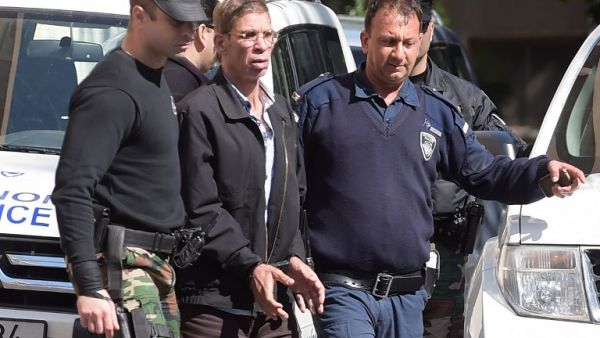The Ministry of Justice in Cyprus approved the extradition of EgyptAir Flight MS181 hijacker Seif El-Din Mustafa back to Egypt, Cyprus News Agency (CNA) reported Wednesday.
Egyptian Prosecutor General Nabil Sadek requested on March 31 that Cypriot authorities extradite the hijacker to Egyptian authorities, citing bilateral and international agreements on the extradition of criminals.
The hijacker has been in Cypriot authorities’ custody since the incident took place on March 29.
“Mustafa faces charges for hijacking, the illegal possession of explosives, abduction, threat of violence, attempt to cause bodily harm with the use of explosives, reckless behaviour, and offences relating to the violation of the laws on terrorism and civil aviation,” CAN reported.
Mustafa was identified as the plane hijacker of EgyptAir flight 181, after reportedly threatening the pilot with an explosive belt, forcing him to land in Larnaca Airport on the morning of March 29.
The flight departed from Borg El-Arab airport near Alexandria and was initially scheduled to land in Cairo at 7.15am, before the hijacker forced its rerouting.
However, the hijack has not been described as an act of terrorism by Cyrpiot authorities, nor by freed passengers who were on board, as they suggested Mustafa was “mentally instable.”
Minister of Foreign Affairs Loannis Kasoulide reiterated that “it was not an incident related to a terrorist act”. In an official statement on 29 March, the minister said the examination of explosives Mustafa claimed to possess, were not identified as such. He further characterised Mustafa’s intentions as unreasonable.
“At the beginning, he wanted to deliver an envelope to his former Cypriot wife, who went to the Airport, following the instructions of the Police, and had a brief discussion with him. He then asked for EU representatives to ensure him on issues that were not reasonable. Finally, he consented to discuss with a representative of the Ministry of Foreign Affairs. By the time Ambassador Pantelides arrived in Larnaka, the operation had ended”, he added.








